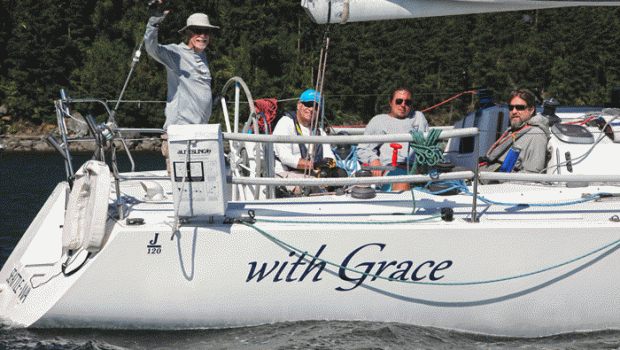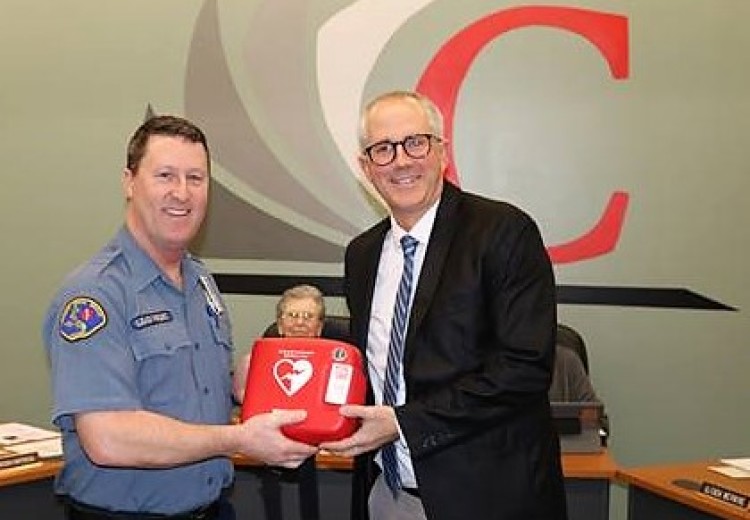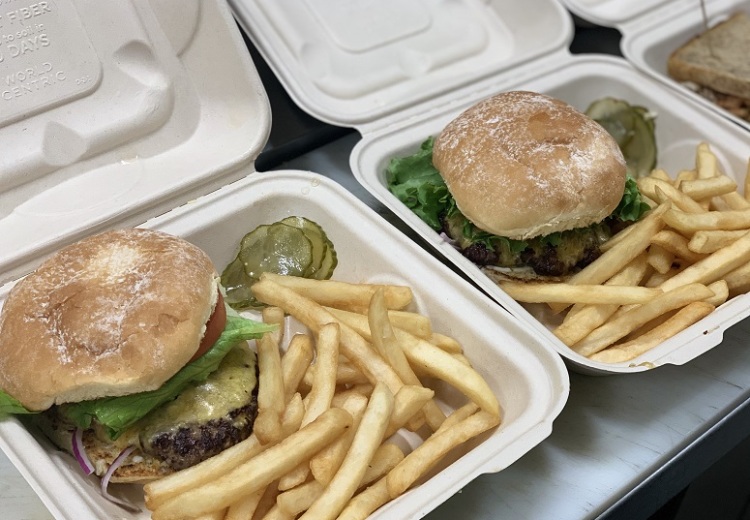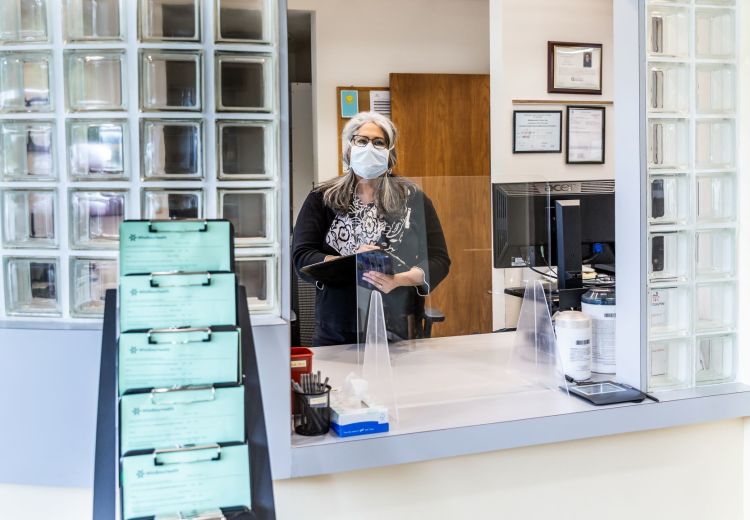
SEATTLE, Washington, July 21, 2021 - Today marks four weeks from the day we lost Gregory Paul Mueller in a man overboard incident during Race 2 at Race Week. Despite the work of many who responded to the incident, Gregory never regained consciousness, and was pronounced dead on the shores of Guemes Island.
I haven’t talked publicly about the man overboard (MOB) accident, aside from a press release that I released shortly after the incident occurred. It has been a difficult event to process, and I believe that allowing for some time of reflection was necessary as a MOB has never been a part of my experience in sailboat racing before now. Gregory was on foredeck with the spinnaker full on a downwind leg of the race. He was seen with lines tangled around his ankles, and one of the crew noticed that he was leaning over to untangle these lines. Then he fell overboard with the lines still wrapped around his legs. The lines kept Gregory attached to the boat, dragging through the water before the boat was depowered and Gregory’s body was brought back to the boat. By this point, he was unconscious.
This we know.
From here, is where my mind races through all those things we don’t know. Did Gregory have a medical incident on board, such as a heart attack or stroke that caused him to fall overboard? Why didn’t the skipper sail head to wind to stop the boat? Why weren’t the lines cut that caused the drag through the water? The Skagit Valley Coroner’s Office has deemed Gregory’s death as an accidental drowning. But thankfully, they’re doing a full investigation involving pathology results to determine if Gregory had a medical event prior to the fall, or if there are any other explanations that help us know what might have happened. These results can take months, so in the meantime, we reflect and wait.
My thoughts have centered on three things: 1) Cold shock, 2) Importance of a PDF, and 3) what I, as a sailboat race event producer could ever do to minimize the chances of a death occurring on the course.
We hear about MOB drills all the time. We may have even participated in a class or workshop where we worked as a team in a very controlled setting to practice picking up someone who has fallen overboard. But I think we need to spend more time educating ourselves about what we can expect if it is us that goes overboard, and talk to our crews every single time we board a boat what are jobs would be ‘if’ a MOB happens. Everyone should have a job assigned to them so that when the stress and adrenaline kicks up, and the chaos abounds, everyone is clear what their function is in the event. What the MOB and the crew does in the first 120 seconds before help can arrive is the most critical because of what is called, ‘Cold Shock”, when someone drops into water under 60 degrees (like Puget Sound). You could have a fleet of first responders on a race course, and the outcome would be the same. It’s why skippers must take the sole responsibility of their crew who are offshore, as these are the inherent risks that are accepted in the sport of sailboat racing.
Falling into cold water provokes an immediate gasp reflex. If your head is under water, you'd inhale water instead of air. Initial shock can cause panic, hyperventilation, and increase heart rate leading to a heart-attack. This stage typically lasts less than a minute, and at this point the person should concentrate on just staying afloat with their head above water until this shock passes (and it does pass). My hope is anyone who ventures out on a boat is acutely aware of Cold Shock before they leave the dock. The message is clear: “If you fall overboard, remember what Cold Shock is, and remind yourself that you will be OK if you can just force yourself to relax, and get through the first minute with your head above water. At this time, don’t try and swim, just keep your head above water. Try and relax and float on your back to catch your breath, then try to get hold of something that will help you float.”
The bottom line, don’t panic, and keep your head up. Studies show that most victims who fall overboard never make it to a hypothermic stage since 75% of individuals succumb and die in the earlier stages of Cold Shock immersion.
Next, I think a MOB discussion should happen with the entire crew before the boat leaves the dock. When someone screams, “Man Overboard!” everyone on the crew should have a handle of what their job should be, and one person who knows everyone’s jobs should act as the alternate and take on the job of the person who has fallen overboard. I’m in no way a MOB expert, but these are some of the jobs that I think are important (and should be executed immediately) following the MOB alert:
Spotter: the person who looks only at the victim during the ordeal and never loses sight.
Thrower: the person who throws floatable cushions, LifeRing, or anything that floats off the boat
Skipper: the person who moves the boat instantly head to wind to stop the boat
Radio: the person who goes to the radio to hail the Race
Committee on the fleet channel that there has been an incident
Caller: the person who calls ‘911’ and reports the incident immediately to emergency medical services
Cutter: the person who cuts any lines, sails, that may cause dragging
Assister: the person who stays with the victim when transferred to shore for medical attention
Documenter: the person who is taking photos of the MOB incident and using photo time stamp, video, live commentary to record the event
I have to say, after many sleepless nights, these are the roles I have deemed most important on a boat. Mind you, every boat is different, and every boat has varying numbers of crew. But that is why it is so critical that the conversation happen every time a new crew assembles, and before leaving the dock so that the first critical 120 seconds of the MOB incident are covered. Having crews discuss it in advance will diminish the fatalities that come from crew falling overboard.
In this incident, I’m very proud of the immediate response of our Race Committee. In this setting, (versus being hundreds of miles offshore in the middle of the ocean), there are not only other racers nearby to assist in a MOB incident, but there are also power boats on the course that make up the Race Committee fleet. But this incident cast a new light on just how little we know about the crews on board the boats that are racing in our events, and going forward I think this deserves some attention. Here are a couple of new things I’m considering adding to Race Week planning going forward:
- Skippers may be asked to register their crews on the registration platform so that crew can be easily identified and next of kin can be easily notified in the event of an accident.
- Skippers may be required to go over the above personal and crew MOB safety protocols with their crews prior to the participation in Race Week.
- Skippers may be required to keep a crew log so that in the event of an emergency, the Organizing Authority can reach family members in the event of an emergency.
- We'll maintain our fleet of judge, umpire, mark set, start and finish boats on the course so that there are resources available to assist when called.
Anyone who ventures away from the shore recognizes the dangers and risks involved. My desire is to not keep people from the fun of sailboat racing, but to remind everyone that we can do better when it comes to safety practices that can help limit fatalities should a MOB happen on our watch. Please spend some extra time with your crews and each other refreshing your MOB protocols. My condolences to the with Grace team, and to Gregory Mueller’s family.
Schelleen Rathkopf







